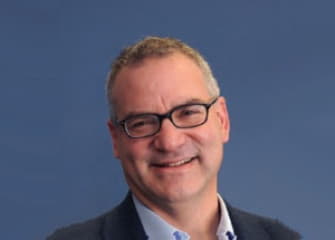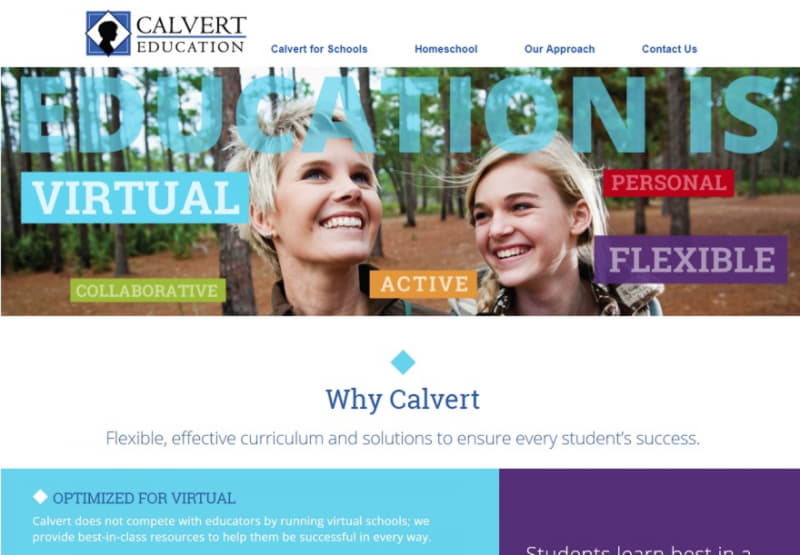
Steve Gross
Click here for Part I, Part III & Part IV
Offering a flexible education curriculum for K–12 students everywhere, backed by over a century of experience
Steve Gross is the CEO of Calvert Education Services. Founded in 1906 through the Calvert School of Baltimore, Calvert Education Services provides homeschooling, instructional support services, and virtual and distance learning programs for students in kindergarten through 12th grade. The company’s curriculum encompasses history, mathematics, reading, writing, arts, music, literature, science, social studies, geography, and many more enrichment courses. For this citybizlist interview, Steve spoke with David Warnock, the founder and CEO of Camden Partners, who also serves as Calvert Education Services’ chairman of the board.
DAVID WARNOCK: May we talk a little bit about the corporate governance? A lot of people are skeptical of for-profit companies associated with education, thinking that somehow they’ll scrimp on academic quality. One of the things that I’m most proud of is that we put a corporate governance system in place at Calvert that works to ensure a real element of accountability for academic performance.
STEVE GROSS: I have what’s called dual bottom line accountability. I’m accountable to you and the board of directors for financial and strategic performance, and I’m accountable to a board of governors focused on academic quality. And while you’re our chairman of the Board of Directors, Nancy Grasmick, who is State Superintendent of Education here in Maryland for 20 years—potentially the most influential educator in Maryland history, certainly on the metal stand—I report to her, and she’s the chair of the Board of Governors. And on that committee are some really high-powered educators who get it.
DAVID WARNOCK: …Including the former chairman of the Pennsylvania State Public School, so you actually have two individuals to whom you report.
STEVE GROSS: That’s right. I have two individuals to whom I report, and that’s a good thing. And I believe ultimately it needs to be symbiotic, and I believe it is. But listen, it’s consistent with the nature of the organization. It is a very mission-based organization. Educators would not think instantly that Calvert is a private organization, even though it is. And there are other organizations in education who they would instantly know are private. Calvert’s viewed differently. One of the benefits of its history is that mission-driven, nonprofit orientation is still part of its legacy—that has its challenges, but also has its advantages. That dual bottom line accountability is an important component of what makes Calvert Calvert, and to continue indefinitely.
DAVID WARNOCK: May we talk about the fact that we actually confer high school degrees, too? That academic accountability is something that, the state of Maryland, for example, and the accrediting bodies that Middle States insists on. We now go through first grade through 12th grade.
STEVE GROSS: Yeah—actually, kindergarten, too. And one confirmation of our academic quality is that shortly after I got here, we finished the job that you started, which was extending Calvert from being a K–8 organization to being a K–12 organization. We are that, and we completed that rather rapidly. The reason we did that was twofold. One was because there was demand from our consumer families who have formed the foundation of what Calvert is—they wanted to have a high school alternative. The other interesting thing was that we are using our high school courses to penetrate international markets, and that’s something we should talk about as well. In order to do that, we needed to be approved by the State of Maryland to confer diplomas. That’s a pretty rigorous thing, David. They put us through our paces, and rightly. We got that diploma-granting capability—that was a few years ago. We just had our second graduation last month—it was great, and we had a large number of people there—a large number of graduates from all over the world—and it was a very emotional, powerful experience, and it’s another important chapter in the history of Calvert.
DAVID WARNOCK: You talked a little bit about international. Calvert has long-standing relationships. I think of Honeybee in Taiwan—a select group of schools—but you've really taken it to a different level.
STEVE GROSS: Calvert does have important relationships with schools, primarily in the Far East, that it’s had for some time. Those relationships are typically centered around print books in elementary grades. What we’ve focused on is this value proposition—in addition to that, not in lieu of—but in addition to that, it’s engaging with schools—let’s say in China—that offer Calvert as a second degree on top of the local Chinese high school diploma. That matters to people because there’s a segment of society in China—but in a lot of countries—where there are international schools that are primarily focused on sending their kids to college in the United States. The ability for us to offer a second diploma to those kids at relatively little incremental cost, and at not an incredible amount of extra work—because they already work really hard in schools like that—but what they get is a powerful differentiator from a prestigious American school. Calvert has sent kids to schools of every type, including the Ivy League. That matters to people in China—matters a lot. We’re able to say to them, “look, from the comfort of your home in Beijing, for some extra work—it’s rigorous but it’s manageable—you can get a genuine American high school diploma from an organization that’s over 100 years old, that is affiliated with a physical school.” We check a lot of options they care about, and that value proposition is gaining traction: we expect to double our high school business in China this year. It’s an exciting thing and I think it’s got a lot of mileage left in that proposition.
DAVID WARNOCK: Right, because in the traditional business, there are families that may be traveling outside the US for a couple of years, but we haven’t ever really accessed international students being educated in their home countries.
STEVE GROSS: That's exactly right. There are American schools, and then there are international schools, and then there are schools for expats, and there are schools for nationals. And to your point, the big opportunity is local schools with nationals who want to learn in English. They need a good program—a really credible program—that enables them to do that. That’s what we provide.
Connect with Steve on LinkedIn


Edwin Warfield, CEO of citybizlist, conducts the CEO Interviews.
If you're interested in reaching CEOs, please contact edwin.warfield@citybuzz.co



































